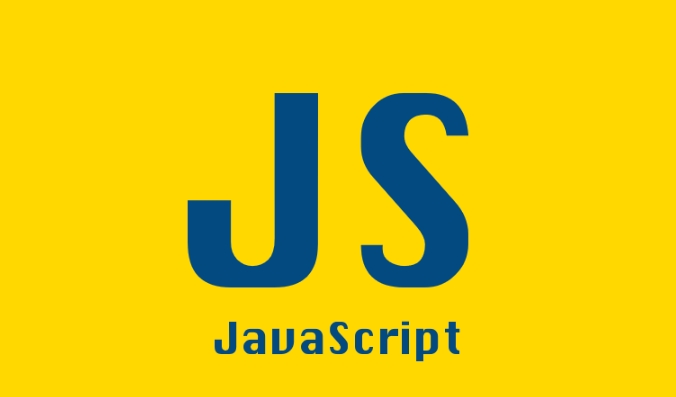 Web Front-end
Web Front-end
 JS Tutorial
JS Tutorial
 Identifying and Mitigating Common Javascript Security Vulnerabilities
Identifying and Mitigating Common Javascript Security Vulnerabilities
Identifying and Mitigating Common Javascript Security Vulnerabilities
Jul 06, 2025 am 12:48 AMJavaScript security issues are easily overlooked, but they must be prevented from XSS, avoid eval(), manage cookies, and pay attention to third-party library security. 1. Prevent XSS: Escape user input, use React/Vue automatic escape mechanism, and set CSP to restrict script sources; 2. Avoid using eval(): Use JSON.parse() instead or use the Function constructor with caution to prevent malicious code execution; 3. Manage cookies and Session: Set HttpOnly and Secure properties, and store sensitive information into HttpOnly cookies instead of localStorage; 4. Pay attention to third-party library security: regularly use npm audit to check for dependency vulnerabilities, reduce unnecessary dependencies, and avoid introducing low-maintenance packages.

In front-end development, JavaScript's security issues are often easily overlooked. Although JavaScript itself is a language that runs on the client side, because of this, many attacks are initiated through it. If you are responsible for developing or maintaining a website, it is very necessary to understand and prevent common JS security vulnerabilities.

1. Prevent XSS (cross-site scripting attacks)
XSS is one of the most common web security vulnerabilities. By injecting malicious scripts into the page, the scripts are executed on their browsers when other users access the page, which can steal cookies, sessions, or phish.

How to prevent it?
- Always escape user input, especially when inserting content into HTML, JS, or URL.
- Use the automatic escape mechanisms that come with modern frameworks (such as React, Vue), which by default prevents direct execution of user input.
- Set
Content-Security-Policy(CSP) in the HTTP header to limit which source scripts can be executed.
For example, if the user comment contains <script>alert('xss')</script> and you insert it directly into the page, it is easy to be attacked. The correct way to do this is to use textContent like instead of innerHTML , or use a library to process the output.

2. Avoid using eval() and dynamically executing string code
eval() can execute strings as JavaScript code, which is convenient in some scenarios, but also very risky. If the incoming data contains malicious code, it will be executed directly.
Alternatives:
- Try to avoid using
eval()and use JSON.parse() to parse structured data instead. - If you need to execute logic dynamically, consider using a function constructor, but you still need to be careful about the input source.
For example:
const userInput = "alert('hacked')"; eval(userInput); // Dangerous!
This writing method is very dangerous, especially if the user input is not filtered. Do not use unless absolutely necessary.
3. Manage cookies and session data well
JavaScript can access and modify cookies through document.cookie , but cookies can easily become targets if configured incorrectly.
Safety advice:
- Set the
HttpOnlyproperty to prevent JS from directly reading cookies and reduce the risk of XSS leakage. - Add the
Secureflag to ensure that cookies are transmitted only over HTTPS. - Try to put sensitive information (such as tokens) in HttpOnly cookies instead of localStorage or sessionStorage.
For example, some developers are accustomed to placing JWT in localStorage, so that once the page is injected into the script, the token may be stolen. By contrast, using HttpOnly cookies is safer.
4. Pay attention to the security of third-party libraries
Modern front-end projects rely on a large number of third-party libraries, which may also have security vulnerabilities. If you don't update dependencies for a long time, you may introduce known issues.
Coping method:
- Regularly check for security updates to dependencies, you can use tools such as
npm audit. - Don't blindly trust open source packages, especially those with low downloads and long-term unmaintained packages.
- Reduce unnecessary dependencies and reduce potential risks.
Sometimes a small functional module, if there is a problem, may affect the security of the entire application. So it is very important to keep the dependency version up to date.
Basically these common but easily overlooked places. Security protection is not necessarily complicated, but the key is to be conscious and pay more attention to daily coding.
The above is the detailed content of Identifying and Mitigating Common Javascript Security Vulnerabilities. For more information, please follow other related articles on the PHP Chinese website!

Hot AI Tools

Undress AI Tool
Undress images for free

Undresser.AI Undress
AI-powered app for creating realistic nude photos

AI Clothes Remover
Online AI tool for removing clothes from photos.

Clothoff.io
AI clothes remover

Video Face Swap
Swap faces in any video effortlessly with our completely free AI face swap tool!

Hot Article

Hot Tools

Notepad++7.3.1
Easy-to-use and free code editor

SublimeText3 Chinese version
Chinese version, very easy to use

Zend Studio 13.0.1
Powerful PHP integrated development environment

Dreamweaver CS6
Visual web development tools

SublimeText3 Mac version
God-level code editing software (SublimeText3)

Hot Topics
 Ten limitations of artificial intelligence
Apr 26, 2024 pm 05:52 PM
Ten limitations of artificial intelligence
Apr 26, 2024 pm 05:52 PM
In the field of technological innovation, artificial intelligence (AI) is one of the most transformative and promising developments of our time. Artificial intelligence has revolutionized many industries, from healthcare and finance to transportation and entertainment, with its ability to analyze large amounts of data, learn from patterns, and make intelligent decisions. However, despite its remarkable progress, AI also faces significant limitations and challenges that prevent it from reaching its full potential. In this article, we will delve into the top ten limitations of artificial intelligence, revealing the limitations faced by developers, researchers, and practitioners in this field. By understanding these challenges, it is possible to navigate the complexities of AI development, reduce risks, and pave the way for responsible and ethical advancement of AI technology. Limited data availability: The development of artificial intelligence depends on data
 Vue Development Notes: Avoid Common Security Vulnerabilities and Attacks
Nov 22, 2023 am 09:44 AM
Vue Development Notes: Avoid Common Security Vulnerabilities and Attacks
Nov 22, 2023 am 09:44 AM
Vue is a popular JavaScript framework that is widely used in web development. As the use of Vue continues to increase, developers need to pay attention to security issues to avoid common security vulnerabilities and attacks. This article will discuss the security matters that need to be paid attention to in Vue development to help developers better protect their applications from attacks. Validating user input In Vue development, validating user input is crucial. User input is one of the most common sources of security vulnerabilities. When handling user input, developers should always
 C# Development Notes: Security Vulnerabilities and Preventive Measures
Nov 22, 2023 pm 07:18 PM
C# Development Notes: Security Vulnerabilities and Preventive Measures
Nov 22, 2023 pm 07:18 PM
C# is a programming language widely used on Windows platforms. Its popularity is inseparable from its powerful functions and flexibility. However, precisely because of its wide application, C# programs also face various security risks and vulnerabilities. This article will introduce some common security vulnerabilities in C# development and discuss some preventive measures. Input validation of user input is one of the most common security holes in C# programs. Unvalidated user input may contain malicious code, such as SQL injection, XSS attacks, etc. To protect against such attacks, all
 C# Development Notes: Security Vulnerabilities and Risk Management
Nov 23, 2023 am 09:45 AM
C# Development Notes: Security Vulnerabilities and Risk Management
Nov 23, 2023 am 09:45 AM
C# is a commonly used programming language in many modern software development projects. As a powerful tool, it has many advantages and applicable scenarios. However, developers should not ignore software security considerations when developing projects using C#. In this article, we will discuss the security vulnerabilities and risk management and control measures that need to be paid attention to during C# development. 1. Common C# security vulnerabilities: SQL injection attack SQL injection attack refers to the process in which an attacker manipulates the database by sending malicious SQL statements to the web application. for
 Java framework security vulnerability analysis and solutions
Jun 04, 2024 pm 06:34 PM
Java framework security vulnerability analysis and solutions
Jun 04, 2024 pm 06:34 PM
Analysis of Java framework security vulnerabilities shows that XSS, SQL injection and SSRF are common vulnerabilities. Solutions include: using security framework versions, input validation, output encoding, preventing SQL injection, using CSRF protection, disabling unnecessary features, setting security headers. In actual cases, the ApacheStruts2OGNL injection vulnerability can be solved by updating the framework version and using the OGNL expression checking tool.
 Methods to solve localstorage security vulnerabilities
Jan 13, 2024 pm 01:43 PM
Methods to solve localstorage security vulnerabilities
Jan 13, 2024 pm 01:43 PM
Security vulnerabilities in localstorage and how to solve them With the development of the Internet, more and more applications and websites are beginning to use WebStorage API, of which localstorage is the most commonly used one. Localstorage provides a mechanism to store data on the client side, persisting data across page sessions regardless of session end or page refresh. However, just because of the convenience and wide application of localstorage, it also has some security vulnerabilities.
 HTTP access control and common security vulnerabilities in Nginx
Jun 10, 2023 pm 04:46 PM
HTTP access control and common security vulnerabilities in Nginx
Jun 10, 2023 pm 04:46 PM
With the popularity of the Internet and the diversification of applications, the security of websites has become the focus of attention. Nginx, an efficient and flexible web server and reverse proxy server, also serves as an important component to ensure website security. This article will focus on HTTP access control and common security vulnerabilities in Nginx. 1. HTTP access control 1. Reverse proxy In actual operations, we often find that some requirements require the use of reverse proxy for access control. Nginx reverse proxy is a
 How to perform security vulnerability scanning in PHP?
May 13, 2023 am 08:00 AM
How to perform security vulnerability scanning in PHP?
May 13, 2023 am 08:00 AM
With the popularity and application of the Internet, the security of web applications has become increasingly important. As an important language for applications, PHP itself brings obvious insecurity factors. In the process of using PHP to develop web applications, developers need to fully understand the security issues of PHP and take certain measures to ensure security. Scanning for security vulnerabilities is an extremely important step. This article elaborates on this issue and briefly introduces the relevant measures on how to scan and process security vulnerabilities in PHP.





